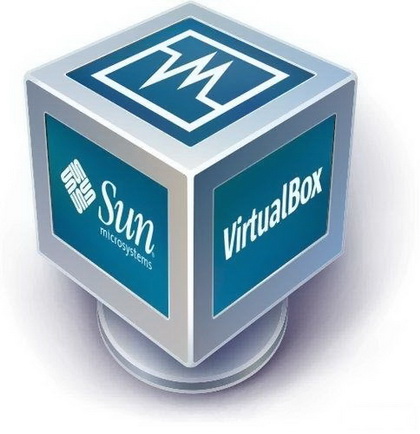VirtualBox v3.2.0r61806 Final
20 мая 2010. Разместил: Agri

VirtualBox v3.2.0r61806 Final
VirtualBox - специальная программа для создания в памяти ПК виртуальных компьютеров. Каждый виртуальный компьютер может содержать произвольный набор виртуальных устройств и отдельную операционную систему. Область применения виртуальных компьютеров очень широка - от выполнения функций по тестированию ПО до создания целых сетей, которые легко масштабировать, распределять нагрузку и защищать. VirtualBox распространяется бесплатно, с открытым исходным кодом.
Существуют версии VirtualBox, предназначенные для установки на практически всех операционных системах, включая Windows, Linux, Macintosh и OpenSolaris. В качестве "гостевой" операционной системы так же могут использоваться любые операционные системы, включая Windows (NT 4.0, 2000, XP, Server 2003, Vista, W7), DOS/Windows 3.x, Linux, и OpenBSD.
Среди основных особенностей программы можно выделить следующие:
VirtualBox может управляться как через GUI-интерфейс, так и через коммандную строку.
Для расширения функций программы разработан специальный комплект SDK.
Параметры виртуальных машин описываются в формате XML и никак не зависят от того физического компьютера, на котором система работает. Поэтому виртуальные компьютеры формата VirtalBox легко переносить с одного ПК на другой.
При использовании на "гостевых" компьютерах операционных систем Windows или Linux можно воспользоваться специальными утилитами, значительно облегчающими переключение между физическим и виртуальными компьютерами.
Для быстрого обмена файлами между гостевым и физическим ПК можно создавать так называемые "разделяемые каталоги" (Shared folders), которые одновременно доступны из обоих этих машин.
VirtualBox позволяет подключать USB-устройства к виртуальным компьютерам, позволяя виртуальным машинам работать с ними напрямую.
VirtualBox полностью поддерживает протокол удалённого доступа RDP (Remote Desktop Protocol). Виртуальная машина может работать как RDP-сервер, позволяя управлять ею удалённо.
Changes in VirtualBox 3.2.0:
This version is a major update. The following major new features were added:
Following the acquisition of Sun Microsystems by Oracle Corporation, the product is now called Oracle VM VirtualBox and all references were changed without impacting compatibility
Experimental support for Mac OS X guests (see the manual for more information)
Memory ballooning to dynamically in- or decrease the amount of RAM used by a VM (64-bit hosts only) (see the manual for more information)
Page Fusion automatically de-duplicates RAM when running similar VMs thereby increasing capacity. Currently supported for Windows guests on 64-bit hosts (see the manual for more information)
CPU hot-plugging for Linux (hot-add and hot-remove) and certain Windows guests (hot-add only) (see the manual for more information)
New Hypervisor features: with both VT-x/AMD-V on 64-bit hosts, using large pages can improve performance (see the manual for more information); also, on VT-x, unrestricted guest execution is now supported (if nested paging is enabled with VT-x, real mode and protected mode without paging code runs faster, which mainly speeds up guest OS booting)
Support for deleting snapshots while the VM is running
Support for multi-monitor guest setups in the GUI for Windows guests (see the manual for more information)
USB tablet/keyboard emulation for improved user experience if no Guest Additions are available (see the manual for more information).
LsiLogic SAS controller emulation (see the manual for more information)
RDP video acceleration (see the manual for more information)
NAT engine configuration via API and VBoxManage
Use of host I/O cache is now configurable (see the manual for more information)
Guest Additions: added support for executing guest applications from the host system (replaces the automatic system presimparation feature; see the manual for more information)
OVF: enhanced OVF support with custom namespace to preserve settings that are not part of the base OVF standard
Среди основных особенностей программы можно выделить следующие:
VirtualBox может управляться как через GUI-интерфейс, так и через коммандную строку.
Для расширения функций программы разработан специальный комплект SDK.
Параметры виртуальных машин описываются в формате XML и никак не зависят от того физического компьютера, на котором система работает. Поэтому виртуальные компьютеры формата VirtalBox легко переносить с одного ПК на другой.
При использовании на "гостевых" компьютерах операционных систем Windows или Linux можно воспользоваться специальными утилитами, значительно облегчающими переключение между физическим и виртуальными компьютерами.
Для быстрого обмена файлами между гостевым и физическим ПК можно создавать так называемые "разделяемые каталоги" (Shared folders), которые одновременно доступны из обоих этих машин.
VirtualBox позволяет подключать USB-устройства к виртуальным компьютерам, позволяя виртуальным машинам работать с ними напрямую.
VirtualBox полностью поддерживает протокол удалённого доступа RDP (Remote Desktop Protocol). Виртуальная машина может работать как RDP-сервер, позволяя управлять ею удалённо.
Changes in VirtualBox 3.2.0:
This version is a major update. The following major new features were added:
Following the acquisition of Sun Microsystems by Oracle Corporation, the product is now called Oracle VM VirtualBox and all references were changed without impacting compatibility
Experimental support for Mac OS X guests (see the manual for more information)
Memory ballooning to dynamically in- or decrease the amount of RAM used by a VM (64-bit hosts only) (see the manual for more information)
Page Fusion automatically de-duplicates RAM when running similar VMs thereby increasing capacity. Currently supported for Windows guests on 64-bit hosts (see the manual for more information)
CPU hot-plugging for Linux (hot-add and hot-remove) and certain Windows guests (hot-add only) (see the manual for more information)
New Hypervisor features: with both VT-x/AMD-V on 64-bit hosts, using large pages can improve performance (see the manual for more information); also, on VT-x, unrestricted guest execution is now supported (if nested paging is enabled with VT-x, real mode and protected mode without paging code runs faster, which mainly speeds up guest OS booting)
Support for deleting snapshots while the VM is running
Support for multi-monitor guest setups in the GUI for Windows guests (see the manual for more information)
USB tablet/keyboard emulation for improved user experience if no Guest Additions are available (see the manual for more information).
LsiLogic SAS controller emulation (see the manual for more information)
RDP video acceleration (see the manual for more information)
NAT engine configuration via API and VBoxManage
Use of host I/O cache is now configurable (see the manual for more information)
Guest Additions: added support for executing guest applications from the host system (replaces the automatic system presimparation feature; see the manual for more information)
OVF: enhanced OVF support with custom namespace to preserve settings that are not part of the base OVF standard
Вернуться назад